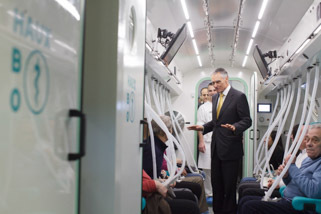

The President of the Republic sent back to Parliament, without enactment, Parliamentary Decree No. 320/XII, which regulates the provisions of article No. 82 of the Code of Copyright and Connected Rights, concerning equitable redress for private copying.
Following is the full text of the Message that the President of the Republic sent to Parliament as to this issue:
“Madam Speaker,
Excellency,
Having received, on 11 March 2015, to be enacted as law, Parliamentary Decree No. 320/XII that comprises the “Second alteration to Law No. 62/98, dated 1 September, which regulates the provisions of article No. 82 of the Code of Copyright and Connected Rights, concerning equitable redress for private copying, I decided, in the terms of article No. 136 of the Constitution, not to enact that bill, based upon the following premises:
1. In regulating the issues regarding what is known as «private copying» it seems essential that an adequate balance is achieved amongst all the interests in question, specifically the rights of authors to be duly rewarded and redressed for their works and, on the other hand, the right of consumers to access, in fair market conditions, the goods and services of digital economy.
2. Not by chance, the debate over «private copying» has been followed up in the European union, it being advisable that this matter be covered by a common regulation, in order to avoid asymmetries and disparities in market conditions, which, in a global economy, could result in the acquisition, by the citizens of a State, of digital goods and services abroad, with losses for all the involved parties, that is, without any benefit resulting from it for national authors.
3. It is significant, in any case, that this debate has been covering the application in itself of European legislation and even the legal pronouncements of the European Union Court of Law.
4. Equally to be considered is the posture assumed by several consumer rights associations, with special reference to the Portuguese Association for Defence of the Consumer – DECO which, in an opinion put forward on the bill under regard considered the same, as quoted, «obsolete, ineffective and disproportionate». It further states that the same bill does not achieve a clear distinction between legitimate copy and illegal copy – since the latter, due to technological development, is not being carried out, predominantly, through the devices that are the object of the measure. It considers, on the other hand, that there is a mismatch of the tools provided for a correct composition of the interests in question and, lastly, refers the need for an enlarged and consistent debate on this issue, which covers all the existing opinions.
5. It is also necessary to take into account the existing doubts as to rectitude and efficiency evoked by the fact that equipment is encumbered independently from the destination given it by consumers, as well as the effects that may result for the development of the digital economy, an area in which the Country is somewhat lagging relative to several of its European partners.
As such, considering the need for a reweighting of the several interests in question, with a view that the legislation to be adopted to cover this issue, seems better tuned to the already existing technological development and more in accordance with an adequate protection of the rights of authors and consumers, I decided to return to Parliament, without being enacted, Decree No. 320/XII.
With highest regards,
Palace of Belém, 31 March 2015,
The President of the Republic
Aníbal Cavaco Silva”
© 2006-2016 Presidency of the Portuguese Republic
You have gained access to the records of the Official Site of the Presidency of the Republic from 9 March 2006 to 9 March 2016.
The contents available here were entered in the site during the 10 year period covering the two mandates of President of the Republic Aníbal Cavaco Silva.